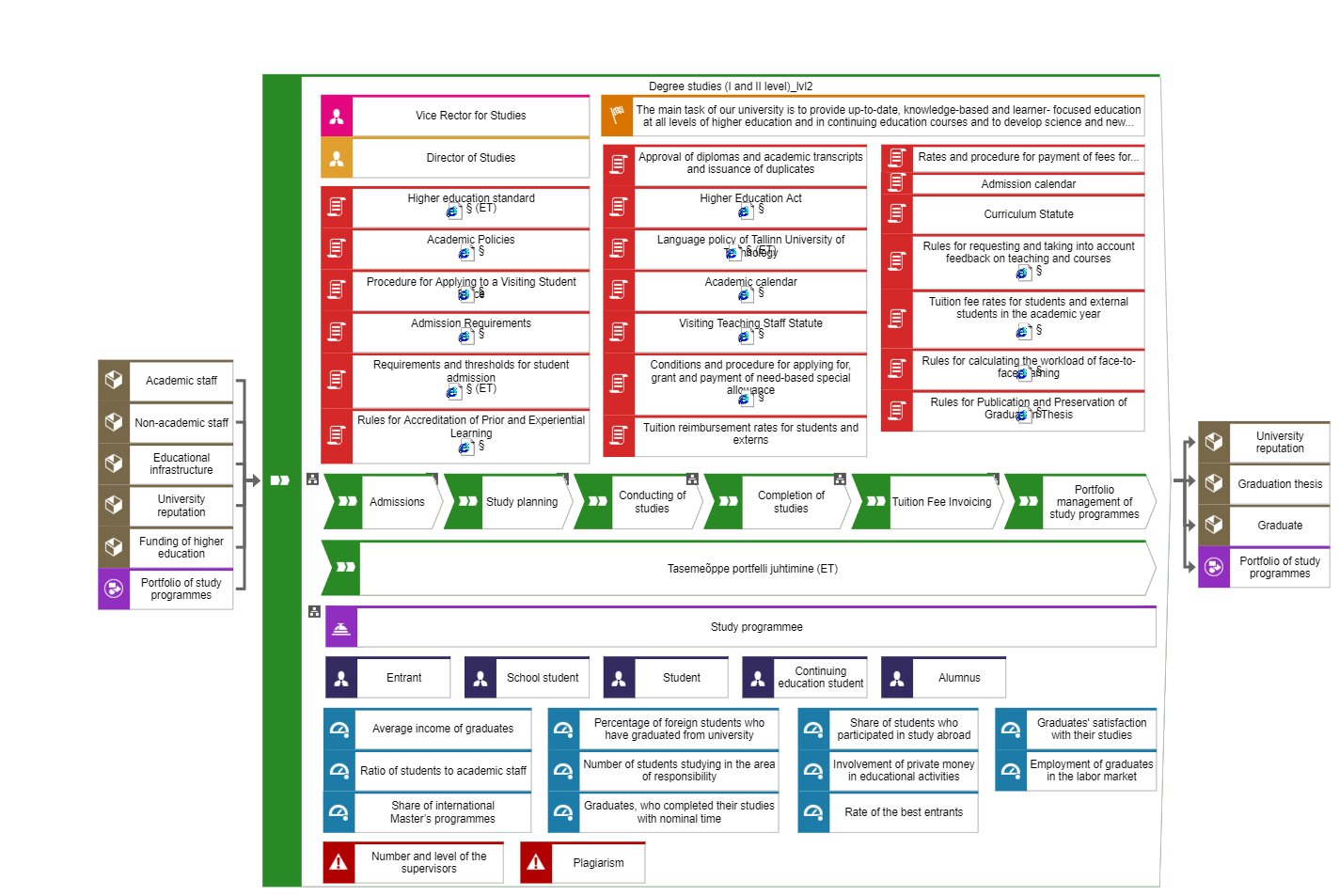Process
Owner
- Hendrik Voll Rectorate Vice-Rector for Academic Affairs Contacts
Manager
- Betra Leesment Office of Academic Affairs Offices/Units Study Director Contacts
Responsible department
Executive departments
Regulations
Performance indicators
If the schedule does not appear, press "Sign in" or "Request access" and refresh the page if necessary.
Rectorate Strategy Office is responsible for the SMART environment:
Tallinn University of Technology

